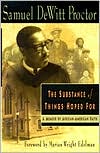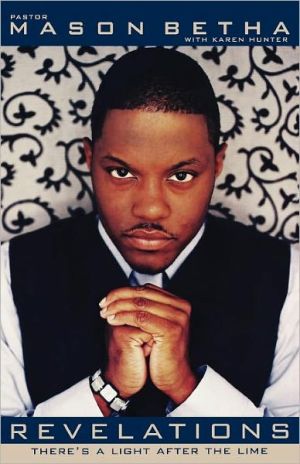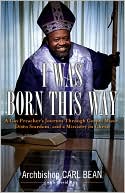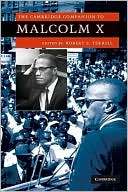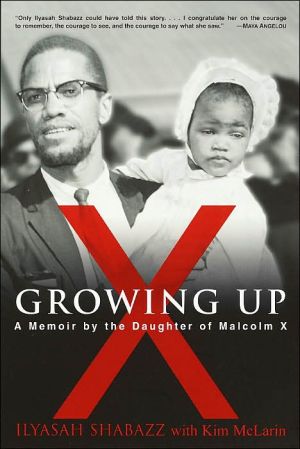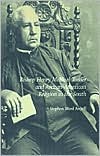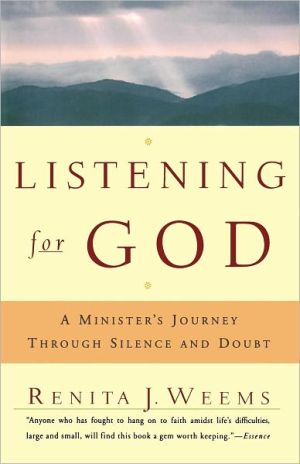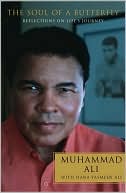Substance of Things Hoped for: A Memoir of African-American Faith
Honored by universities, ministries, and institutions nationwide, called into service in the administration of two presidents, Samuel Proctor has established himself as a preeminent theologian, orator, and educator in this country. In The Substance of Things Hoped For, he takes us on a personal journey that begins with his grandparents' slavery and ends with his vision of a full fruition of the African-American experience, and a celebration of the tie that holds African Americans together:...
Search in google:
Honored by universities, ministries, and institutions nationwide, called into service in the administration of two presidents, Samuel Proctor has established himself as a preeminent theologian, orator, and educator in this country. In The Substance of Things Hoped For, he takes us on a personal journey that begins with his grandparents' slavery and ends with his vision of a full fruition of the African-American experience, and a celebration of the tie that holds African Americans together: simple, tenacious faith. Proctor eloquently shows how this faith - which began with the emancipated slaves' enduring desire to be free - is present today. He believes that this faith in justice, and in a genuine community where every person is an equal participant, still runs deep. It is stronger than consistent prejudice, deceptive racial stereotypes, and destructive polarization. Proctor pragmatically outlines his vision of the path that will take us toward genuine community. It is based on the principles of individual outreach and family rejuvenation. He believes the lives of lost youth can be salvaged best through efficient schooling. Proctor outlines a provocative yet sensible program - a National Youth Academy - to achieve his goal of turning the next generation around through school reform. To resolve the current crisis, he calls for the renewal of black churches at a national level, so the force of their impact can be felt. Most important, he issues a clarion call to all African Americans: "Genuine community is possible only if we accept that our destiny lies right here, with a new America in the making. The success that the middle-class black population has achieved has a direct relationship to hard work, personal pride, the pursuit of justice and equality, and deep faith in a future filled with meaning and purpose. Such success has been earned in the face of racism and contempt for black progress. And it has been earned because we believed in a future where we werePublishers WeeklyProctor-pastor emeritus of Abyssinian Baptist Church in Harlem, an ex-professor and college administrator and former associate director of the Peace Corps-has lived a life sustained by faith and clear-eyed optimism about the possibilities and problems faced by American blacks. His warm, lucid memoir covers so much ground that it seems skimpy in places. However, his anecdotes resonate: they relate to the backbone he gained from family, church and black society in the segregated South; his role as mentor to Martin Luther King Jr. and many others; and his conviction, after trips to Africa and other foreign lands, that black Americans are inherently American. Though a man of tradition, he calls for the black church to liberalize its attitudes toward women. He has strong policy suggestions to reclaim lost youth: reinvest in teaching; have black churches link up to gain clout; establish a Peace Corps-like National Youth Academy at deactivated military bases to educate youngsters whom schools haven't helped. That would cost much less than prisons, he warns. Literary Guild alternate; author tour. (Jan.)
\ Publishers Weekly - Publisher's Weekly\ Proctor-pastor emeritus of Abyssinian Baptist Church in Harlem, an ex-professor and college administrator and former associate director of the Peace Corps-has lived a life sustained by faith and clear-eyed optimism about the possibilities and problems faced by American blacks. His warm, lucid memoir covers so much ground that it seems skimpy in places. However, his anecdotes resonate: they relate to the backbone he gained from family, church and black society in the segregated South; his role as mentor to Martin Luther King Jr. and many others; and his conviction, after trips to Africa and other foreign lands, that black Americans are inherently American. Though a man of tradition, he calls for the black church to liberalize its attitudes toward women. He has strong policy suggestions to reclaim lost youth: reinvest in teaching; have black churches link up to gain clout; establish a Peace Corps-like National Youth Academy at deactivated military bases to educate youngsters whom schools haven't helped. That would cost much less than prisons, he warns. Literary Guild alternate; author tour. (Jan.)\ \ \ \ \ Library JournalProctor, the grandson of a slave, became the president of two black colleges, a top administrator in the Peace Corps and at Rutgers University, and pastor of Harlem's huge Abyssinian Baptist Church. He reminisces here about his tireless lifetime struggle to better the lot of blacks through education and religion. He devotes a major portion of this work debunking both racist stereotypes held by whites and what he views as futile separatist agendas among blacks. He outlines an ambitious plan, grounded in education, religion, and traditional values, to rescue blacks from poverty, ignorance, and despair. Proctor's work is a passionate and eloquent call to action, founded on a lifetime of fulfilling achievement. Highly recommended for undergraduate and public libraries.-Richard S. Watts, San Bernadino Cty. Lib., Cal.\ \
